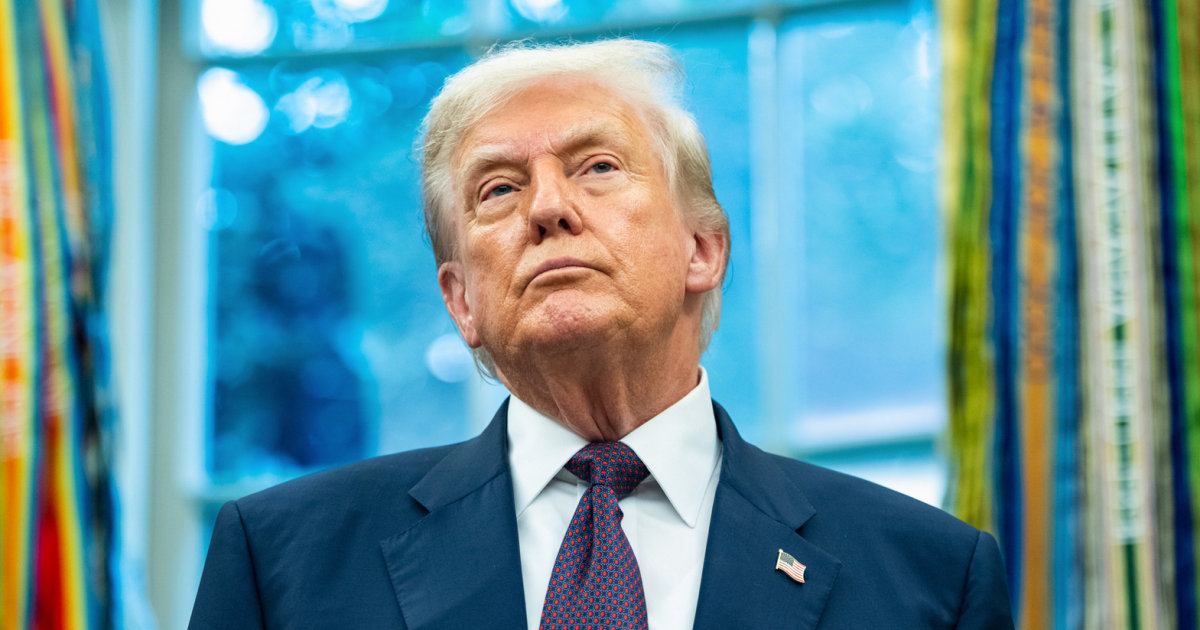What Happens When Trump Meets Putin in Alaska Next Week and Why Was the IRS Commissioner Ousted?

Temporary Ban on Beto O'Rourke's Political Group: A Closer Look
In a significant legal development, a Texas district judge has issued a temporary injunction against former Representative Beto O’Rourke and his political organization. The ruling aims to prevent O’Rourke and his associates from aiding Democratic legislators who have fled the state. Their move is a strategic effort to obstruct Republican plans regarding redistricting, which many believe could tilt the political balance in Texas.
This article dives into the implications of this ruling, the background of the political maneuvering in Texas, and the broader context surrounding redistricting efforts in the United States. Understanding these elements is crucial for grasping the ongoing political dynamics that shape Texas and the nation's legislative landscape.
Understanding the Context: Redistricting in Texas
Redistricting occurs every ten years following the census and is a fundamental aspect of American politics. In Texas, the process has historically been contentious, often resulting in legal battles and accusations of gerrymandering. Gerrymandering refers to the practice of drawing electoral district boundaries to benefit a particular political party, thereby influencing election outcomes.
As Texas has grown rapidly, the stakes in redistricting have become even higher. With increasing population diversity, the way districts are drawn can significantly impact representation for various demographic groups, particularly minorities. The current redistricting plan proposed by Texas Republicans has raised concerns among Democrats, leading to strategic actions such as the mass exodus of legislators.
The Role of Beto O'Rourke
Beto O'Rourke, a prominent figure in Texas politics, has been an outspoken advocate for progressive causes, including voting rights and equitable representation. His political group has played a role in mobilizing efforts to support Democratic legislators who oppose Republican redistricting efforts. O’Rourke's involvement highlights the increasing polarization in Texas politics, where partisan lines are drawn sharply over issues of representation and democracy.
The temporary injunction against O'Rourke's group signifies a legal challenge to the tactics employed by Democrats to counteract Republican strategies. It raises questions about the limits of political support and how far individuals and organizations can go in influencing legislative processes.
The Legal Implications of the Ruling
The judge’s ruling serves as a crucial reminder of the legal frameworks that govern political financing and support. While political advocacy is a cornerstone of democracy, there are legal boundaries that groups must navigate. The injunction against O’Rourke emphasizes the importance of adhering to these regulations, especially when financial resources are involved in legislative battles.
This ruling could have lasting implications for future political maneuvers in Texas and potentially across the nation. As more states grapple with redistricting, the legal interpretations of political support and funding will likely be tested, setting precedents that could influence future elections.
Political Reactions and Public Sentiment
The response to the ruling has been mixed, reflecting the deep divisions within Texas politics. Supporters of the ruling argue that it upholds the integrity of the legislative process while critics view it as a suppression of democratic engagement. Public sentiment is often divided along partisan lines, with many Democrats accusing Republicans of undermining fair representation through aggressive redistricting tactics.
As news of the ruling spreads, it could mobilize both sides of the political spectrum. Democrats may intensify their efforts to rally support against perceived injustices, while Republicans might leverage the ruling to consolidate their position regarding the redistricting process.
The Bigger Picture: Redistricting Across the United States
Texas is not alone in facing challenges related to redistricting. Across the United States, various states are grappling with similar issues. The redistricting process can often lead to legal battles, with states like North Carolina and Wisconsin experiencing significant court cases over gerrymandering accusations.
As the political landscape continues to evolve, the need for transparent and fair redistricting practices becomes increasingly apparent. Advocacy groups and citizens alike are calling for reforms to ensure that district boundaries reflect the demographic realities of communities rather than political ambitions.
Future of Political Advocacy
The temporary injunction against O'Rourke's group may serve as a catalyst for discussions about the future of political advocacy in the United States. As political engagement becomes more polarized, the role of individuals and organizations in shaping legislative outcomes will be scrutinized more closely.
Future political battles will likely hinge on how effectively groups can mobilize support for their causes while navigating the legal landscape. The balance between advocacy and adherence to legal constraints will be a critical consideration for political operatives moving forward.
Conclusion: The Future of Redistricting in Texas and Beyond
As the situation in Texas unfolds, the implications of this temporary injunction against Beto O'Rourke and his political group will resonate beyond state lines. The ongoing debates surrounding redistricting, gerrymandering, and political advocacy are far from over, and they will shape the political landscape for years to come.
In an era where political engagement is crucial, how do we ensure that the voices of all citizens are heard fairly in the redistricting process? As we move forward, it’s vital to consider the balance between political strategy and the core democratic principles that underpin our electoral system.
FAQs
What is the purpose of redistricting?
Redistricting is the process of redrawing electoral district boundaries to ensure that each district has roughly equal population sizes, thus maintaining fair representation in government.
How does gerrymandering affect elections?
Gerrymandering can distort electoral outcomes by manipulating district boundaries to favor one political party over another, leading to unbalanced representation and diminished voter choice.
What are the legal implications of political funding?
Political funding is subject to various regulations intended to ensure transparency and prevent corruption. Violating these laws can lead to legal challenges and penalties for political organizations.
What strategies do political groups use to influence redistricting?
Political groups may employ various strategies, including advocacy campaigns, legal challenges, and grassroots mobilization, to influence redistricting processes and outcomes.
What role does public sentiment play in redistricting efforts?
Public sentiment can significantly influence redistricting efforts, as engaged citizens can advocate for fair representation and hold politicians accountable for their actions during the process.
As the political landscape continues to evolve, will we see more states adopt reforms to ensure fair redistricting practices? The conversation is just beginning. #Redistricting #PoliticalAdvocacy #TexasPolitics
Published: 2025-08-09 00:48:49 | Category: Trump GNEWS Search



